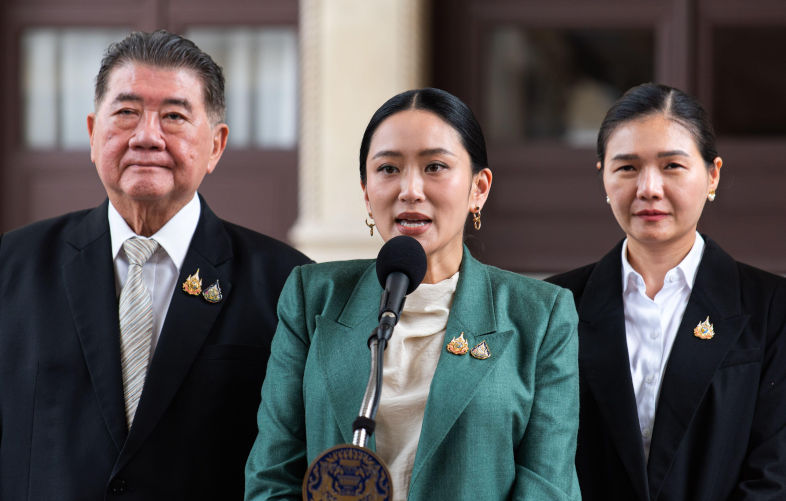Thai-Cambodia clash and the Thai military’s short leash
July 30, 2025
The flare-up in fighting between Thailand and Cambodia in the Dangrek Ranges reflects a longstanding disagreement about border demarcation.
But, more importantly, the fighting is a result of political tensions within Thailand between popular will and elite control.
Thailand’s border with Cambodia was originally demarcated by then Siam and the colonial French in 1907, using the traditional colonial method of tracing watersheds. However, this demarcation left access within Thailand to ancient Khmer temple sites, in particular that of Preah Vihear, which was agreed to be part of Cambodia.
Access to the temples has long been an issue of national pride in Cambodia, which has elevated its ancient Khmer past to a central position in the country’s public image. In Thailand, however, the issue has been used as a wedge in domestic politics, with the military attempting to portray the Thaksin family and their supporters as not protecting Thai national interests.
Promoting Thai claims to the border area has been the heavily politicised military and the country’s economic elite. Opposing these military-elite interests has been the populist political movement initiated by then prime minister Thaksin Shinawatra under the guise of his Thai Rak Thai party and its successors. Recent Thai politics has been noted for Thaksin-initiated electoral success punctuated by military coups and attempts to marginalise him and his family’s influence in Thai politics.
Following Thailand’s 2006 coup, Thaksin fled overseas, in 2009 landing in Cambodia as “special adviser” to the Cambodian Government. Cambodia refused Thailand’s request to extradite Thaksin on alleged corruption charges, heightening tensions between the neighbours.
Disagreement between Thailand and Cambodia over demarcation of the border in the temple area resurfaced in 2008 but escalated with Thaksin in Cambodia the following year.
After Thaksin’s sister Yingluck Shinawatra was removed as prime minister in 2014, followed a few weeks later by a military coup. Thaksin’s daughter, Paetongtarn Shinawatra, became prime minister in 2024. She was removed from office following a leaked phone call between her and former Cambodian leader Hun Sen earlier this month.
In the phone call, Paetongtarn was seeking to defuse border tensions that had flared in May and, in doing so, was critical of a local Thai military commander. While Paetongtarn said there was no division between her government and the Thai military, the Constitutional Court removed her from office citing ethics concerns.
The Thai military used the May border clashes in order to undermine the leadership of Paetongtarn, who has a close relationship with “Uncle” Hun Sen. But it was the leaking of the phone call to Hun Sen itself that fatally wounded her prime ministership. The Thai military has since used the border conflict as a nationalist “rally around the flag” moment, by way of shifting attention from Paetongtarn’s ouster.
For its own part, having its army receive new equipment from China and chafing under a long history of being a subservient neighbour, Cambodia has been in no mood to take a backwards step. Cambodia is still outgunned by Thailand’s larger and better equipped military but, short of an all-out war, is largely able to match Thailand on the ground in the mountainous northern border regions.
Meanwhile, Paetongtarn’s father, Thaksin, returned to Thailand in 2023 and, although sent directly to prison, he was released in 2024 under a military approved royal pardon. Upon Thaksin’s release from prison, he was visited in Bangkok by Hun Sen.
But, following this most recent outbreak of cross-border violence, Thaksin has accused Hun Sen of orchestrating the border conflict. In doing so, it appears that Thaksin has recognised that no matter who initiated this most recent round of fighting, he understands that he and his family are firmly on the Thai military’s short leash.
The views expressed in this article may or may not reflect those of Pearls and Irritations.


